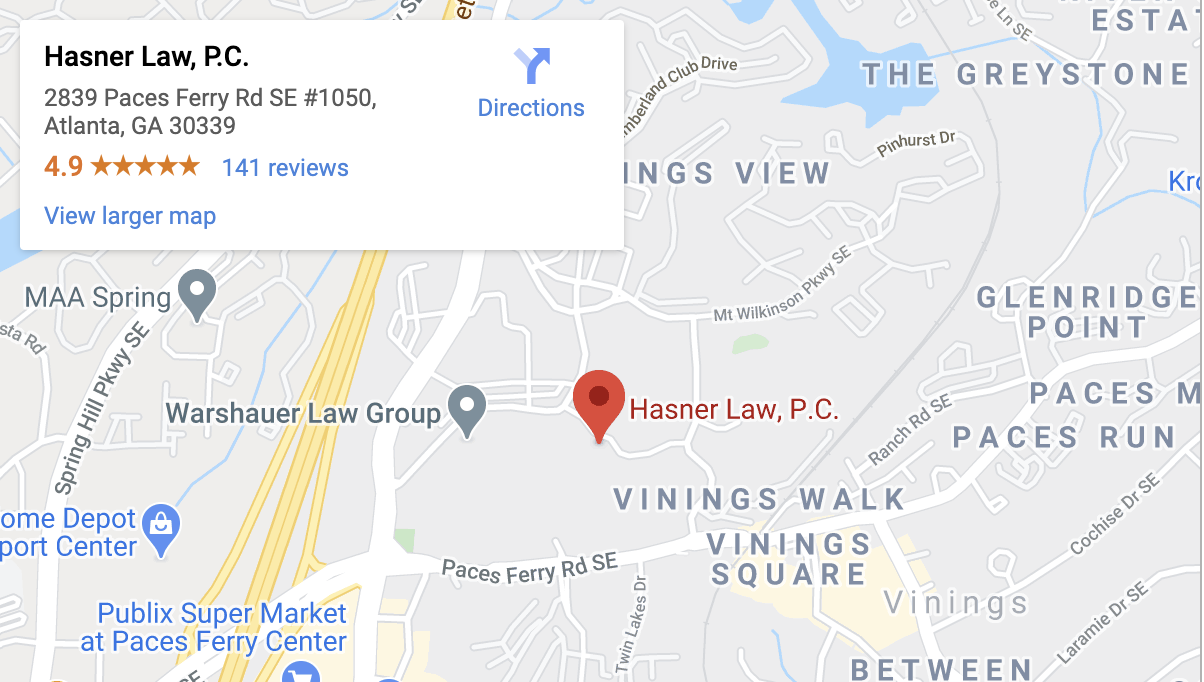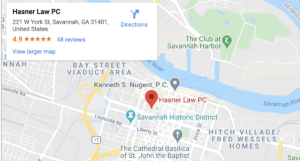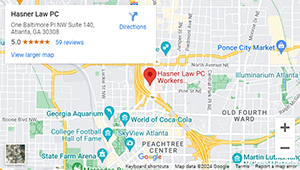How Much Does a Lawyer Cost?

After a car accident, slip and fall accident, or workplace accident, you might need compensation to pay medical bills or to be able to make up for lost wages.
Legal representation could make the difference between winning a case and bearing the financial burden of your injuries on your own.
So, what will it cost to hire a lawyer?
The short answer is that it depends. It depends on how the lawyer structures their fee. It depends on what type of case you have and how complex it is. It depends on how your case is ultimately resolved.
Here, we’ll take a look at how the way your lawyer structures their fee will impact what it costs to hire them to represent you after you get hurt.
Types of Legal Fees
Legal fees can take many different forms, including:
Hourly Fees

Lawyers charge hourly fees for cases that require an uncertain amount of work. Since the lawyer does not know how many hours the case will take, an hourly fee fairly compensates the lawyer and represents the work that the client received. Very few injury lawyers charge an hourly fee.
Flat Fees
Clients pay a flat fee for a discrete amount of work. A client might pay a flat fee to a lawyer to write a will or file an application for a business license. Again, most injury lawyers do not charge a flat fee.
Contingent Fees

A contingent fee depends on the outcome of the case. The lawyer calculates the legal fee as a percentage of the compensation that you win after the case has settled or a jury has awarded damages. A typical contingent fee ranges anywhere between 20% and 40% of the compensation recovered for the client.
The type of legal fee you pay will depend on the type of work your lawyer performs for you. Most injury lawyers charge a contingent fee instead of an hourly or flat fee.
Characteristics of Contingent Fees
Atlanta personal injury lawyers usually work for a contingent fee. A contingent fee is a percentage of the money that the lawyer recovers for your injuries.
Some of the characteristics of contingent fees include:
There Are No Upfront Charges
Since the lawyer does not collect — or even calculate — the contingent fee until the case ends, the lawyer will start working on the case without requiring any upfront fees.
There is No Charge if You Lose
If you lose, your compensation is $0. This means that your legal fee will also be $0.
There Are No Out-of-Pocket Charges

When the case ends, the lawyer deducts legal fees from your settlement or damages that are awarded. This means that you will never pay out-of-pocket for your lawyer.
Contingent fees are sometimes called the “keys to the courthouse.”
Injured and disabled people, seniors, and young families often rely on contingent fee lawyers to vindicate their legal rights. Without contingent fees, clients would pay for injuries caused by someone else.
Benefits of Contingent Fees
A contingent fee helps clients to secure legal assistance and provides fair compensation to the lawyer. Specifically, contingent fees:
Incentivize the Lawyer
Since the contingent fee is a percentage of the amount won, the lawyer has an incentive to work for the largest settlement or damages award possible. The larger your compensation is, the larger the lawyer’s fee will be.
Guarantee Something for You
The contingency fee is usually between 20% and 40% of your financial recovery. This guarantees that you will keep 60% to 80% of your injury compensation to pay for medical bills, lost wages, diminished earning capacity, and property losses.
Help Clients in Difficult Financial Situations
People injured in accidents are often buried in expenses for medical treatment, physical and mental therapy, and pharmaceuticals. At the same time, they are often unable to work while they recover from their injuries. A contingency fee helps these clients to pursue compensation from the person responsible for their injuries.
Discourage Weak Cases

When you meet with an injury lawyer, the lawyer will assess your case. If the lawyer cannot settle or win the case, the lawyer will not take the case. The percentage of a contingent fee can vary to account for the lawyer’s skill and experience. The percentage might also vary with the amount of work involved.
For example, a contingency fee might be 30% for a settlement and 35% if the case goes to trial.
What Contingent Fees Usually Cover
Contingent fees usually cover most of the legal services your lawyer will perform, including:
Legal Advice
Contingent fees include the lawyer’s advice about the value of your case and the merits of your legal arguments. Fees usually cover all communications with the lawyer, whether you meet in person, speak by telephone, or write emails.
Negotiation
Lawyers resolve most injury cases by negotiating with the insurer for the person responsible for your injuries.
Litigation

If negotiations fail, your lawyer might recommend filing a lawsuit. The fees will include your lawyer’s time to gather evidence, prepare for trial, and present your case to a jury. The State Bar of Georgia requires lawyers to provide written contingent fee agreements.
If you are confused about the terms of a contingent fee, discuss your concerns with your lawyer before you sign the agreement.
What Contingent Fees Usually Do Not Cover
Contingency fees usually do not cover hard costs. During the case, your lawyer might advance money to cover these costs. But when the lawyer settles or wins the case, you must reimburse the lawyer for these costs. Some examples of costs include:
Filing Fees
Courts charge a fee when a lawsuit is filed.
Court Reporter Fees
If your lawyer deposes witnesses, your lawyer will hire a court reporter to create a transcript of the deposition.
Expert Witness Fees
Expert witnesses are often needed in injury cases to explain the science behind the accident or your injuries. For example, medical malpractice cases almost always require an expert witness.
Your contingent fee agreement will identify the costs that are charged to you. The agreement will also explain whether the costs are deducted before or after the contingency fee is calculated.
Hiring a Contingent Fee Lawyer
Most injury lawyers offer a free consultation. During this consultation, you should raise the issue of fees.
You can request a copy of the fee agreement during the initial consultation. Review the agreement carefully and raise any questions with your lawyer. You should thoroughly understand the lawyer’s fees before you hire the lawyer.






